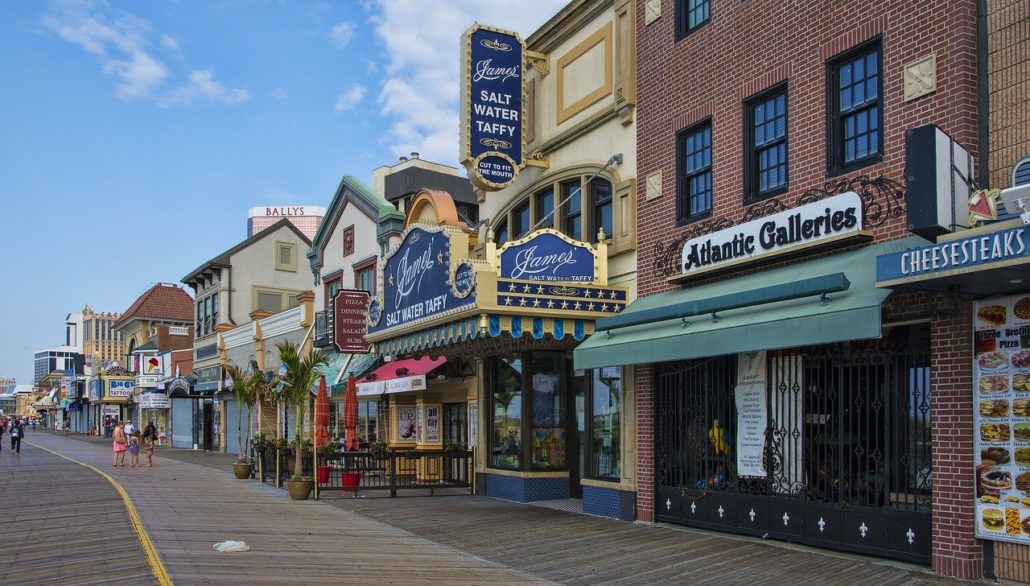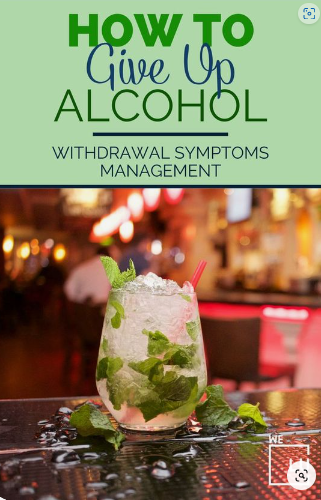Where to find a 24/7 addiction hotline?
If you or someone you know is struggling with addiction and needs help or advice, contact an addiction hotline. Addiction hotline operators are available 24/7 and offer free and confidential support. They can provide resources and referrals to rehabilitation centers and local support groups, as well as answer questions about alcoholism treatment or drug detox.
Where can you receive assistance for drug addiction near you? You may contact hotlines for drug addiction to learn more about drug misuse, treatment options, and other drug-related issues if you or a loved one is suffering from substance or alcohol use disorder.
Depending on the level of care a healthcare physician determines, inpatient and detox treatment facilities may be explored as treatment options. Addiction hotline texts for alcohol and support for drug addict hotlines are often managed by qualified, compassionate people who want to help.
We Level Up Hotline for Drug Addiction & Alcohol Addiction Crisis
The We Level Up addiction hotline is available 24/7. They can help provide resources, advice, and treatment options tailored to your needs.
If you or someone you know is struggling with addiction, there is additional help available. Nonprofit organizations, such as Narcotics Anonymous (NA), offer 12-step programs, counseling, and support groups to help people work through their addiction. NA also provides resources such as drug information and support hotlines, such as weed addiction hotlines, heroin addiction hotlines, meth addiction hotlines, cocaine addiction hotlines, and opioid addiction hotlines. Furthermore, the National Institute on Drug Abuse (NIDA) provides information and resources on addiction, prevention, and treatment.
There are many resources available to people struggling with addiction. The Substance Abuse and Mental Health Services Administration website provides detailed information about getting help and finding treatment services. Moreover, many organizations, like Alcoholics Anonymous and Narcotics Anonymous, offer helpful resources and support groups. Self-help books, online support communities, and even web-capable applications can help individuals learn more about addiction, its effects, and ways to overcome it.
Drug Addiction Hotlines
There are various drug addiction hotlines available to help individuals struggling with addiction. The National Drug Helpline is a free and confidential service that provides information and resources for those facing addiction. The Substance Abuse and Mental Health Services Administration (SAMHSA) provides a national helpline (1-800-662-HELP) that connects callers to treatment programs available in their local areas.
NJ Addiction Hotline
The NJ Addiction Hotline is available and operates 24/7. It is free and confidential. They can provide assessments, referrals, and resources on available addiction treatment options and services.
NJ addiction hotlines are dedicated phone numbers people can call when they deal with addiction or their loved one struggles with addiction. When you call an NJ addiction hotline, you’re connected to someone who can provide you with information about resources near you that can help. Addiction hotlines operate 24 hours a day, are anonymous, and are free to call. The person answering the call to the NJ addiction hotline has the training and specialized knowledge in mental health and substance abuse to help them deal with people in a variety of situations related to addiction, including alcoholism treatment.
Some are recovering themselves, so they understand the challenges of dealing with addiction and making the first move toward recovery. Everyone answering a call to the NJ addiction hotline provides referrals to local drug treatment centers and mental health services, as well as other types of support.
According to the State of New Jersey’s Department of Health, there were more than 82,000 treatment admissions in 2020. About 41% of these people sought help for heroin abuse, and 32% were struggling with alcoholism. Many of these people were admitted after calling the NJ addiction hotline.
Alcohol Addiction Hotline
The National Drug and Alcohol Hotline for Alcohol Addiction provides free and confidential 24/7 counseling and referral services to individuals struggling with alcohol addiction.

It is important to keep in mind that alcohol dependency and addiction is a serious condition that requires treatment. If you are struggling with alcohol addiction, contacting a healthcare professional or seeking treatment from a qualified facility can make a great difference.

Skip To:
Learn More:

Get Your Life Back
Find Hope & Recovery. Get Safe Comfortable Detox, Addiction Rehab & Mental Health Dual Diagnosis High-Quality Care at the We Level Up Treatment Centers Network.
Hotline (877) 378-4154Drug Addiction Facts
Addiction is defined as a chronic, relapsing disorder characterized by compulsive drug seeking and use despite adverse consequences. It is considered a brain disorder, because it involves functional changes to brain circuits involved in reward, stress, and self-control. Those changes may last a long time after a person has stopped taking drugs.
What is drug use?
Drug use, or misuse, includes:
- Using illegal substances, such as
- Anabolic steroids
- Club drugs
- Cocaine
- Heroin
- Inhalants
- Marijuana
- Methamphetamines
- Misusing prescription medicines, including opioids. This means taking the medicines in a different way than the health care provider prescribed. This includes
- Taking a medicine that was prescribed for someone else
- Taking a larger dose than you are supposed to
- Using the medicine in a different way than you are supposed to. For example, instead of swallowing your tablets, you might crush and then snort or inject them.
- Using the medicine for another purpose, such as getting high
- Misusing over-the-counter medicines, including using them for another purpose and using them in a different way than you are supposed to
Drug use is dangerous. It can harm your brain and body, sometimes permanently. It can hurt the people around you, including friends, families, kids, and unborn babies. Drug use can also lead to addiction.
What are the treatments for drug addiction?
Treatments for drug addiction include counseling, medicines, or both. Research shows that combining medicines with counseling gives most people the best chance of success.
The counseling may be individual, family, or group therapy. It can help you:
- Understand why you got addicted
- See how drugs changed your behavior
- Learn how to deal with your problems so you won’t go back to using drugs
- Learn to avoid places, people, and situations where you might be tempted to use drugs
Medicines can help with the symptoms of withdrawal. For addiction to certain drugs, some medicines can help you re-establish normal brain function and decrease your cravings.
It is a dual diagnosis if you have a mental disorder and addiction. It is crucial to treat both problems. This will increase your chance of success.
You may need hospital-based or residential treatment if you have a severe addiction. Residential treatment programs combine housing and treatment services.
Drug use and addiction are preventable. Prevention programs involving families, schools, communities, and the media may prevent or reduce drug use and addiction. These programs include education and outreach to help people understand the risks of drug use.
Drug Addiction Statistics
If you are thinking of seeking drug addiction treatment for yourself or a loved one, you are not alone. The number of people suffering from substance use disorders in the US is astounding. Here are some reports from the Substance Abuse and Mental Health Services Administration. [2]
59.3 Million
More than 59.3 million people 12 or older used illicit drugs in the past year, including 49.6 million who used marijuana.
Source: SAMHSA
2 out of 3
Two out of three drug overdose deaths in 2018 involved an opioid.
Source: SAMHSA
10.1 Million
In 2019, an estimated 10.1 million people aged 12 or older misused opioids in the past year. Specifically, 9.7 million people misused prescription pain relievers, and 745,000 people used heroin.
Source: SAMHSA
Get Help. Get Better. Get Your Life Back.
Searching for Accredited Drug & Alcohol Rehab Centers Near You? Or Mental Health Support?
Even if you have failed previously, relapsed, or are in a difficult crisis, we stand ready to support you. Our trusted behavioral health specialists will not give up on you. Call us when you feel ready or want someone to speak to about therapy alternatives to change your life. Even if we cannot assist you, we will lead you wherever you can get support. There is no obligation. Call our hotline today.
FREE Addiction Hotline – Call 24/7USA & NJ Addiction Hotline For Drugs & Alcohol Abuse Infographic
Contact an addiction hotline if you or someone you know needs support or guidance because of an addiction. Operators at the 24-hour addiction helpline provide free, private support. They can answer inquiries regarding alcoholism treatment or drug detox as well as offer resources and links to local support groups and rehabilitation facilities.

What to expect when calling the NJ addiction hotline?
When calling the NJ addiction hotline, you should be prepared to answer questions regarding your (or your loved one’s) history of substance abuse. The NJ hotline for drug addiction staff member will likely ask you what sort of substances you have been using and how long you have been using drugs or alcohol. The staff member will ensure that you are safe, and they will ask questions about your living situation, what sort of insurance coverage you have to help you pay for treatment, and where you would like to go for treatment.
What will the national addiction hotline ask usually?
If you’re thinking about entering a detox rehab or rehab treatment for addiction, it may be time to call the NJ addiction hotline. These hotlines are available around the clock to answer your questions and help you decide when and how to begin treatment.
You can expect the hotline for addiction operators to ask several questions. The first question they will ask will be whether you are safe. Once they know you’re not in an emergency situation related to drugs or alcohol, the hotline staff member will ask you about the extent of your substance abuse. Questions may include:
- What kind of drugs are you using?
- How long have you been using drugs?
- How much or how often do you use drugs?
- Do you use one drug or multiple substances?
- Do you have any mental health conditions alongside substance abuse?
The hotline staff member will also ask if you’re ready to begin treatment. If you are, they will gather some information from you to determine which treatment program best suits you.
How do I know I should call a New Jersey addiction hotline?
If you believe you or someone you love may be abusing drugs and are unsure whether you should call an NJ drug abuse hotline, there are a couple of common alcoholism and drug addiction questions you can ask yourself:
- Has drug or alcohol use become more frequent, and serious, or is it causing issues? Have you begun noticing symptoms of binge drinking?
- Have you or someone you love suggested they wanted to get sober and didn’t know where to start?
- Do you need help or advice on how to approach the topic of addiction and get them the help or resources they need?
- Have you or someone you love started to neglect responsibilities at school, work, or home in favor of substance use?
- Have you or someone you love started acting out of character, continuing to use despite reservations, relationship impacts, increased need to achieve the same feeling (tolerance), or mental/physical withdrawal symptoms that could indicate dependence?
- Some symptoms include: losing interest in favorite things, becoming messy/neglecting to bathe, change clothes, or brush teeth, cranky moods or mood swings, sleeping at strange hours, and eating a lot more or less than usual.
Comfortable Facilities & Amenities
High-Quality Addiction & Mental Health Rehabilitation Treatment
Rehab Centers TourRenowned Addiction Centers. Serene Private Facilities. Inpatient rehab programs vary.
Addiction Helpline (877) 378-4154Proven recovery success experience, backed by a Team w/ History of:
15+
Years of Unified Experience
100s
5-Star Reviews Across Our Centers
10K
Recovery Success Stories Across Our Network
- Low Patient to Therapist Ratio
- Onsite Medical Detox Center
- Comprehensive Dual-Diagnosis Treatment
- Complimentary Family & Alumni Programs
- Coaching, Recovery & Personal Development Events
Can I call a drug addiction hotline in NJ for someone else?
Yes, you can call a toll-free, confidential NJ addiction hotline on behalf of yourself or someone else. Our treatment advisors will walk you through approaching your loved one in a delicate way if you are calling for someone else. Addiction can take a heavy toll on all parties involved so taking the first step by calling the NJ addiction hotline can help you reach a little more peace of mind.
What to ask the NJ addiction services hotline?
People who call the NJ addiction hotline typically ask certain questions about entering treatment, including:
- How can I tell if I need rehab?
- What treatment options do I have?
- How does detox work and how can I detox safely and comfortably?
- How long will I need to stay in treatment?
- How much will I have to pay for treatment?
- Does insurance cover rehab and can I enter rehab if I’m not insured?
- Are there any free rehabs?
Are NJ addiction hotlines free and confidential?
All alcohol abuse and addiction hotlines for NJ residents are entirely free and confidential. In fact, several laws and regulations are in place to protect callers’ identities. Nonetheless, you aren’t required to give out your identity and any information you provide cannot be disclosed to a third party without explicit permission.

World-class, Accredited, 5-Star Reviewed, Effective Addiction & Mental Health Programs. Complete Behavioral Health Inpatient Rehab, Detox plus Co-occuring Disorders Therapy.
CALL (877) 378-4154End the Addiction Pain. End the Emotional Rollercoaster. Get Your Life Back. Start Drug, Alcohol & Dual Diagnosis Mental Health Treatment Now. Get Free No-obligation Guidance by Substance Abuse Specialists Who Understand Addiction & Mental Health Recovery & Know How to Help.
What kind of addiction treatments are available?
Alcohol and drug addiction is a complex and long-lasting medical condition characterized by compulsive behaviors despite negative consequences. Addiction is a relapsing disease, meaning a person can return to drug or alcohol use during an attempt to quit or even many years after quitting. The good news is that addiction is treatable and there are many effective options available to help people struggling with substance abuse.
Treatments can help people stop using drugs or alcohol, stay drug-free, and lead a productive, healthy, happy life. It is worth noting that no single addiction treatment is right for everyone and the treatment plan needs to be individualized to address the needs of each person. The NJ addiction hotline can help you identify the level of care you or your loved one needs and the nearby programs that offer those types of addiction treatments.
The main types of addiction treatments that are used in treating drug and alcohol abuse include:
Medically-Assisted Detox
Medically-assisted detox is usually the first phase of addiction treatment, during which the body is allowed to rid itself of harmful substances under medical supervision. For some substances, detox can be dangerous if not conducted under such supervision. Medical supervision ensures that any health complications that arise as well as withdrawal symptoms and cravings can be managed by the healthcare team to ensure safe and comfortable detoxification.
Behavioral Counseling
A range of therapies, such as CBT (cognitive-behavioral therapy), DBT (dialectical-behavioral therapy), and contingency management has proven effective in treating substance use disorders. These therapy modalities are used in individual and group counseling settings and during outpatient and inpatient drug and alcohol rehab. They help people recovering from substance use disorders to develop skills and learn strategies to avoid triggers and prevent relapse to substance use.
Medication-Assisted Treatment (MAT)
Several FDA-approved medications can help people in recovery stay clean by reducing drug cravings and withdrawal symptoms. These medications can be prescribed by healthcare providers to assist in continuing sobriety.
Mental Health Disorders
Addiction and mental illness (e.g., depression, and anxiety disorders) often occur together, which is why many drug rehab centers offer dual diagnosis treatment for both conditions concurrently. This gives the best chance of sustained recovery.
Aftercare and Long-Term Follow-Up
As noted, addiction is a relapsing disease, and people can return to drug and alcohol use after many years of sobriety. Long-term follow-up and aftercare programs consist of support groups, ongoing education, and mentorship to prevent relapse.

How can I find an addiction hotline 24/7 and a nearby inpatient drug rehab facility in New Jersey?
The best place to start looking for inpatient drug rehab facilities near you is to call the NJ addiction hotline and ask them about available local treatment centers that can provide you or your loved one with adequate care. You can also use numerous online locators to help you in your search for treatment facilities or possible sober living options after completing treatment.
Another option is to call recognized treatment providers. For instance, you can contact us at We Level Up NJ to see what treatment options are available. Finding the best NJ addiction rehabilitation center for alcohol or substance abuse in the tri-state area can seem overwhelming. That’s why the We Level Up NJ rehab drives to offer top alcohol rehabilitation programs in New Jersey. With insurance, your cost may be covered. You may have free check insurance online or contact one of our treatment specialists for quick and efficient treatment referrals. Your call is private and confidential.
Top 3 Emergency Addiction Hotline FAQs
-
How can you get someone to stop drinking? Drug Addiction Hotline Number and Addiction Recovery Hotline
Be ready to direct them to a treatment program you think may be a good fit or to online resources. If a loved one in your life is struggling with alcohol or drug addiction, The We Level Up is here to help. Contact us to discuss intervention help, treatment options, and available resources to help your loved one on the road to recovery.
-
How do you help someone who doesn’t want to stop drinking? Alcohol and Drug Addiction Help Hotline & Intervention Services
Alcohol and drug hotlines help you or your loved one with a path toward recovery. An intervention can motivate someone to seek help for alcohol or drug misuse, compulsive eating, or other addictive behaviors. People who struggle with addiction are often in denial about their situation and unwilling to seek treatment. They may not recognize the negative effects their behavior has on themselves and others. An intervention presents your loved one with a structured opportunity to make changes before things get even worse, and it can motivate him or her to seek or accept help.
-
How to solve a drug problem? 24 Hour Addiction Hotline
If a loved one is using drugs, encourage them to talk to their primary care doctor. It can be easier to have this conversation with a doctor than with a family member. Not all drug treatment requires long stays in residential treatment centers. For someone in the early stages of a substance use problem, a conversation with a doctor or another professional through a 24 hour addiction hotline may be enough to get them the help they need. Doctors can help the person think about their drug use, understand the risk for addiction, and come up with a plan for change.
Experience Transformative Recovery at the We Level Up Treatment Center.
See our authentic success stories. Get inspired. Get the help you deserve.



Start a New Life
Begin with a free call to an addiction & behavioral health treatment advisor. Learn more about our dual-diagnosis programs. The We Level Up treatment center network delivers various recovery programs at each treatment facility. Call to learn more.
- Personalized Care
- Caring Accountable Staff
- Comfortable Amenities
- Licensed & Accredited
- Renowned w/ 5-Star Reviews
We’ll Call You
Search We Level Up NJ Addiction Hotline, Detox, Mental Health Topics & Resources
Sources
[1] New Jersey Drug and Alcohol Abuse Treatment – https://www.nj.gov/humanservices/dmhas/publications/statistical/Substance%20Abuse%20Overview/2020/Statewide.pdf
[2] Treatment Approaches for Drug Addiction DrugFacts – National Institute on Drug Abuse (NIDA)
[3] National Survey on Drug Use and Health (NSDUH) – Substance Abuse and Mental Health Services Administration (SAMHSA)
[4] McKay JR. Impact of Continuing Care on Recovery From Substance Use Disorder. Alcohol Res. 2021 Jan 21;41(1):01. DOI: 10.35946 PMID: 33500871; PMCID: PMC7813220.
[5] Fluyau D, Charlton TE. Drug Addiction. [Updated 2022 Aug 29]. In: StatPearls [Internet]. Treasure Island (FL): StatPearls Publishing; 2022 Jan-. Available from: https://www.ncbi.nlm.nih.gov/books/NBK549783/
[6-7] Justinova Z, Panlilio LV, Goldberg SR. Drug addiction. Curr Top Behav Neurosci. 2009;1:309-46. DOI: 10.1007/978-3-540-88955-7_13. PMID: 21104390; PMCID: PMC3039293
[8] McLellan AT. Substance Misuse and Substance Use Disorders: Why do they Matter in Healthcare? Trans Am Clin Climatol Assoc. 2017;128:112-130. PMID: 28790493; PMCID: PMC5525418.
[9] Justinova Z, Panlilio LV, Goldberg SR. Drug addiction. Curr Top Behav Neurosci. 2009;1:309-46. DOI: 10.1007/978-3-540-88955-7_13. PMID: 21104390; PMCID: PMC3039293.
[10] Jahan AR, Burgess DM. Substance Use Disorder. [Updated 2022 May 5]. In: StatPearls [Internet]. Treasure Island (FL): StatPearls Publishing; 2022 Jan-. Available from: https://www.ncbi.nlm.nih.gov/books/NBK570642/





